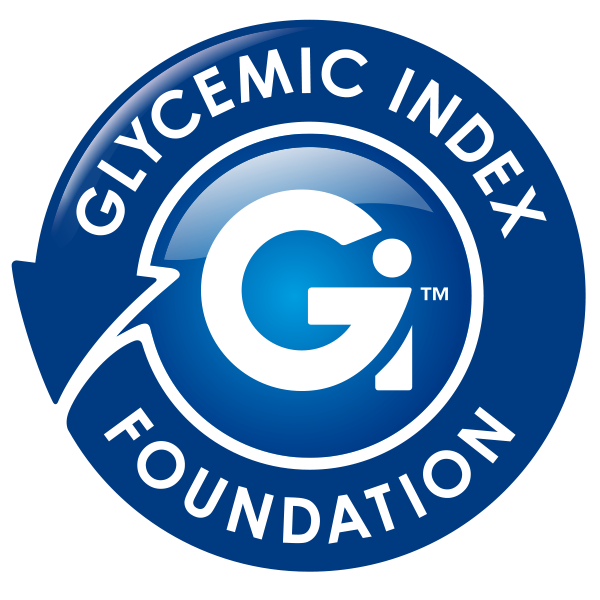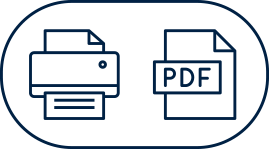GI Foundation Privacy Policy
Introduction
The Privacy Act 1988 (‘the Privacy Act’) requires entities bound by the Australian Privacy Principles (APPs) to have a privacy policy. This privacy policy outlines the way the Organisation handles personal information.
The specific legal obligations of the Organisation when collecting and handling your personal information are outlined in the Privacy Act, in particular in the APPs found in that Act. We will update this privacy policy when our information handling practices change.
Collection of your personal information
We always try only to collect and hold information that we need for a particular function or activity.
The kinds of information we may collect or hold include your name, gender, date of birth, lifestyle information, postal address, residential address, email address, phone number, credit card details and/or other payment information.
The main way we collect personal information is directly from you. This may include collecting information:
- Online – including when you subscribe to newsletters and e-services
- Like minded third parties who believe our services may be of interest to you.
When a person with diabetes is under 18 years old or lacks the mental capacity and legal competence to make decisions, the person’s primary carer or guardian must consent to the collection of the person’s information.
Collecting sensitive information
To administer our services, we may also collect or hold sensitive information – including health information, racial or ethnic origin, and preferred language. For example, we might ask for your weight, diabetes type, medication type, cholesterol level and HbA1c upon your initial consult or at events so that we can develop the right health care plan for you.
Anonymity
It is your choice to provide personal information to us. Wherever it is lawful and practicable, you have the option not to identify yourself or to use a fictional name when interacting with us.
You can remain anonymous when using some parts of our Websites. However, it may be necessary for us to collect your Personal or Sensitive Information if you would like to access certain materials or services. If you choose to withhold the information we require, we may not be able to provide the services you have requested.
Website usage and cookies
We use a range of tools provided by third parties, including Google and Bing, to collect or view website traffic information. These sites have their own privacy policies.
We also use cookies and session tools to improve your experience when accessing our websites. An individual can browse and access our website without revealing their identity.
We collect the following data from individuals who visit our website:
- The number of visits;
- Date and time of visits;
- Number of pages viewed; and
- How users navigate through the site.
A cookie is a small amount of data that is transferred to the individual’s browser by a Web server and can only be read by the server that gave it to the individual. It functions as the individual’s identification card and enables us to record the individual’s passwords, purchases, and preferences. It cannot be executed as code or deliver viruses.
Most browsers are initially set to accept cookies. An individual can set their browser to notify them when they receive a cookie, giving them the chance to decide whether to accept it or not. (For some Web pages that require an authorisation, cookies are not optional. Users choosing not to accept cookies will probably not be able to access those pages.
While we use cookies to track individual visits to our websites, our Web servers automatically log the IP/Internet address of an individual’s computer, we do not use this information to identify the individual personally.
Storage and security of your personal information
We are committed to protecting the security of all personal information we hold from misuse, interference, loss and unauthorised access, disclosure or modification.
We store personal information in both paper and electronic format.
Paper-based: All personal information stored as a paper-based record is held either on the premises within locked cabinets or at a secure external access-controlled facility.
Electronic-based: All personal information held as electronic data is securely stored on local Australian servers backed up nightly or in real-time. Personal information held in this manner is subject to restricted access and password protection. All staff access to personal information held on our servers is monitored. Our network is secured to ensure that no-one outside the office can access it unless they have been afforded special privileges.
When personal information is no longer required for carrying out our functions or activities, all reasonable steps are taken to destroy or ensure that the information is de-identified. This will apply unless we are required, under Australian law, to retain the personal information for a specified period.
Direct Marketing
Your personal information is only collected when you subscribe to our newsletter, request brochures, interact on our social media platforms or fill out the contact us online form. This information will be kept on record so that we may respond to your comment or request.
How to ‘opt-out’ of direct marketing communication
You can choose to ‘opt-out’ of receiving direct marketing. Direct marketing communications include surveys, research opportunities, fundraising campaigns and event information.
When you freely provide your personal information, you automatically opt-in to receive direct marketing communication.
You can choose to ‘opt out’ of receiving direct marketing communications at any time by selecting ‘unsubscribe’ on email communications sent by us, or by emailing info@gisymbol.com
If you choose to ‘opt out’ of receiving our direct marketing communications, you may be asked to provide your full name, address, date of birth and membership number for verification purposes
Disclosure of Personal Data
We will only disclose your personal information to third parties in the following circumstances:
- where you have consented to the disclosure;
- where third party contractors deliver services on our behalf or to us, government agencies, mailing houses and other organisations. All external parties who receive your information must sign a confidentiality agreement that requires them to comply with the Privacy Act and our Privacy Policy;
- where we deliver services to or on behalf of third-party contractors, including other State and Territory Agencies. All external parties who receive your information must sign a confidentiality agreement that requires them to comply with the Privacy Act and our Privacy Policy;
- to protect or defend the legal rights or property of Diabetes Queensland, our affiliated and group companies or their employees, agents and contractors (including enforcement of our agreements);
- to protect against fraud or for risk management purposes;
- if we believe your actions violate this Privacy Policy;
- to comply with the law or legal process; or
If we should disclose personal information to third party contractors, the Organisation takes steps to either:
- De-identify the personal information; or
- Ensure that those contractors are authorised only to use your personal information to perform the specialised function.
Choosing not to provide personal information may affect the services and programs we can provide to an individual.
Notifiable Data Breaches
The Privacy Act Amendment, Notifiable Data Breaches (NDB) Act 2017 requires us to notify particular individuals and the Office of the Australian Information Commissioner about ‘eligible data breaches’. A data breach is eligible if it is likely to result in serious harm to any of the individuals to whom the personal or sensitive information relates. Diabetes Queensland will make an objective assessment of whether a data breach is likely to result in serious harm and take remedial action according to its data breach response plan. See www.oaic.gov.au for further information.
Disclosure of personal information overseas
If you communicate with us through a social network service such as Facebook or Twitter, the social network provider and its partners may collect and hold your personal information overseas.
Quality of Personal Information
To ensure that the personal information we collect is accurate, up-to-date and complete we:
- record information in a consistent format;
- where necessary, confirm the accuracy of information we collect from a third party or a public source;
- promptly add updated or new personal information to existing records;
- regularly audit our contact lists to check their accuracy; and
- We also review the quality of personal information before we use or disclose it.
Accessing and correcting your personal information
Under the Privacy Act (APPs 12 and 13) you have the right to ask for access to personal information that we hold about you, and ask that we correct that personal information. We must respond to access and correction requests within 30 days.
You can request access by emailing by emailing info@gisymbol.com
Correcting your personal information
You can ask to correct or update your personal information throughout the year. This can be done byemailing info@gisymbol.com
How to make a Complaint
If you have any questions about how we handle personal information, would like to complain about how we have handled your personal information, or would like further information about our Privacy Policy, please submit a written query or complaint by emailing info@gisymbol.com
If we receive a complaint from you about how we have handled your personal information, we will determine what (if any) action we should take to resolve the complaint.
If you do not wish to raise the complaint with us directly, you can contact the Office of the Australian Information Commissioner www.oaic.gov.au/privacy/privacy-complaints.
Updating our Privacy Policy
We will update our Privacy Policy from time to time. Our website will have the most current Privacy Policy.

